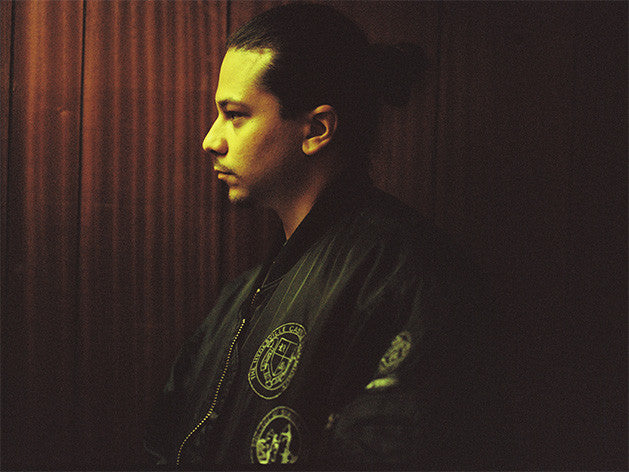
Were any specific memories related to music when you were a kid, like your first concert or the first album you bought?
One of my earliest music memories is sitting in the living room of my mum’s flat, playing with Lego bricks when I was 5 years old. My mum would be doing the dishes in the kitchen while songs like Massive Attack's ‘Protection’, Björk's ‘Venus as a Boy’ and Seal's ‘Kiss From a Rose’ played in the background.
The first cassette tape I ever owned was Jamiroquai’s Cosmic Girl. I remember the video like it was yesterday; it felt very futuristic to me as a 6-year-old. The first CD I bought with my own money was Eminem’s The Marshall Mathers LP. I can honestly say that record changed my life. It was so extreme; Eminem pushed all the hip hop cliches to the maximum, backed up by unbelievable skill on the microphone, as well as great production from Dr Dre and the Bass Brothers. There used to be a record shop round the corner from me called Vinyl Mania. It's no longer there, unfortunately. The first 12" I bought was The Streets’ Has It Come To This on white label. I wasn't even tall enough to see over the shop counter.


How did your foray into music begin?
My foray into music began when I started going onto a pirate radio station called Laylow FM when I was 14. I would MC, and I was pretty bad, and I was also living a lie. I would rap about shooting and stabbing people and stuff, as that was the norm then. I was still trying to find an identity, I guess, and Grime wasn't it.
When I was 15 I met my production partner Dorian (Mïnk) through our mutual friend, Luke. Dorian's uncle had a small recording studio just off Askew Rd in Shepherd's Bush, West London. Dorian had invited me down to the studio. I'd never been in a professional studio before, with a booth, mixing desk and proper mics and stuff, and here was this 14-year-old, tall skinny kid, Dorian—setting everything up, using a mixing desk and engineering the whole session. From that day, I knew he was a special talent. It wasn't until I was 21 that I started taking music seriously. I started trying to shop my then-demo to people with little success.
What genres does the label represent? Do you think it is good to refrain from categorizing yourself as a label?
I don't really care for genres or labels, my main focus is to make people have an emotional response to what I do. Good or bad, it's all about authenticity, feeling led by music and making the best product with whatever tools you have. As long as you keep going, likeminded people will eventually find you.
Where do you derive inspiration for your music?
The inspiration for music always stems from something personal: a feeling, mood, conversation. Then it grows into something else, and moves beyond me. I tend to write in an esoteric way, which leaves the subject matter open to interpretation. People can take what they want from my songs and their subject matter.

What is your creative process like?
My creative process changes, but at the moment I'm taking sampled drum loops/breaks and chopping them up in Garage Band, making a loose framework of a song, then presenting these loose ideas to Dorian. Then he essentially rebuilds the whole song, without losing any of the ‘vibey’ elements from the initial demo. It's the collaboration and exchange of ideas that make the process interesting for me. Sometimes the process is more interesting than the final result.
Someone once told me that to make music means to let go. Do you agree?
I'm not sure if I completely agree with that statement; my music is often angsty and uptight, and that’s sometimes what makes it interesting or different. But a part of me believes you have to be open or willing to try things. I think there is a thin line between 'letting go' and being too free, which can result in something incoherent. The most important thing in music is the feeling; all the best things are feeling-led, in my opinion.
Describe Elliott Power in three words?
Elliott Power in three words....Considered cinematic sounds.
Video credits:
Cinematography by Deepa Keshvala.
Edited by Fouad Gabe @ Trim and Jason Wallis.
Music by Mïnk (AKA Dorian Lutz) - For Us
